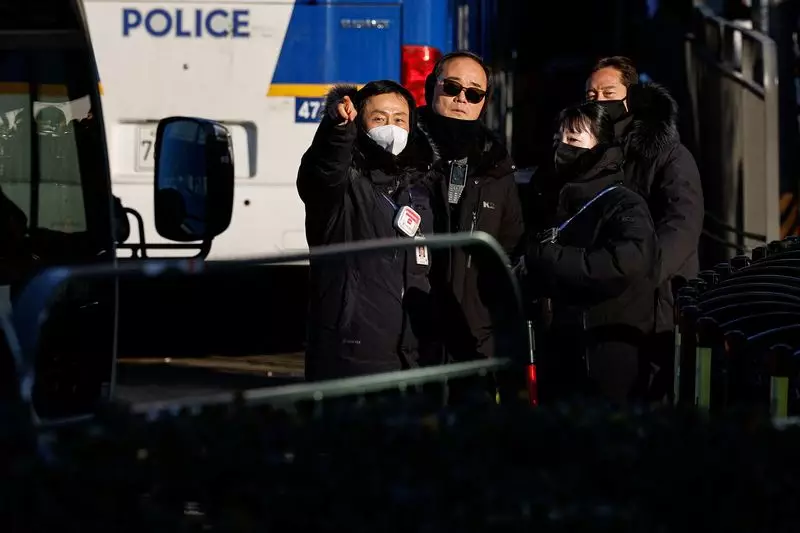The political landscape in South Korea has been rocked by the impeachment of President Yoon Suk Yeol, whose administration is currently under intense scrutiny following accusations that he attempted to impose martial law during a crisis. The tensions reached a boiling point when Yoon’s security chief, Park Chong-jun, expressed concerns over the treatment of a sitting president facing arrest. This unprecedented situation raises questions not only about Yoon’s political future but also about the integrity of South Korea’s political institutions.
Park Chong-jun, as the head of the Presidential Security Service (PSS), finds himself embroiled in controversy, facing investigations for allegedly obstructing law enforcement. His involvement escalated when PSS agents physically blocked authorities trying to execute an arrest warrant for Yoon, creating a volatile standoff that ultimately led to the withdrawal of investigative teams. This event underscores the profound dysfunction within the government, illustrating how security measures intended to protect the leader have instead been weaponized to defy judicial authority.
Park’s insistence on avoiding physical confrontations reveals both an understanding of the broader implications of such a standoff and a recognition of the high stakes involved. His statement that “bloodshed must be avoided” highlights the fragility of democracy in South Korea, with rising tensions posing potential risks of violent clashes between governmental factions. His calls for restraint present a moral imperative not only for the participants in this escalating conflict but also for the public, who may feel compelled to protest or intervene.
The contentious arrest warrant serves as a focal point for the ongoing struggle between Yoon’s camp and the judiciary. Lawyers representing President Yoon have argued that the warrant is illegal, fueling the narrative that the legal system is being weaponized for political ends. The government’s pushback intensifies the questions surrounding the rule of law and fairness in South Korean politics. This situation further complicates the ongoing Constitutional Court review that could determine whether the impeachment stands or if Yoon is restored to power, creating a precarious balance between legal adjudication and political maneuvering.
As South Korea navigates this tumultuous period, the implications extend far beyond Yoon’s impeachment. The current crisis raises significant inquiries about the resilience of democratic institutions and the conduct of public officials. The military’s warning against potential bloodshed reflects fears that this political turmoil could spiral out of control, threatening national stability. The actions of both the PSS and the government will define not only Yoon’s legacy but also the public’s faith in leadership and governance in the years to come.
The layers of complexity surrounding President Yoon Suk Yeol’s impeachment crisis reveal a deeper malaise within South Korean politics. The interplay between executive authority and judicial oversight is under severe strain, and how this conflict resolves will be pivotal in shaping the nation’s democratic future.

